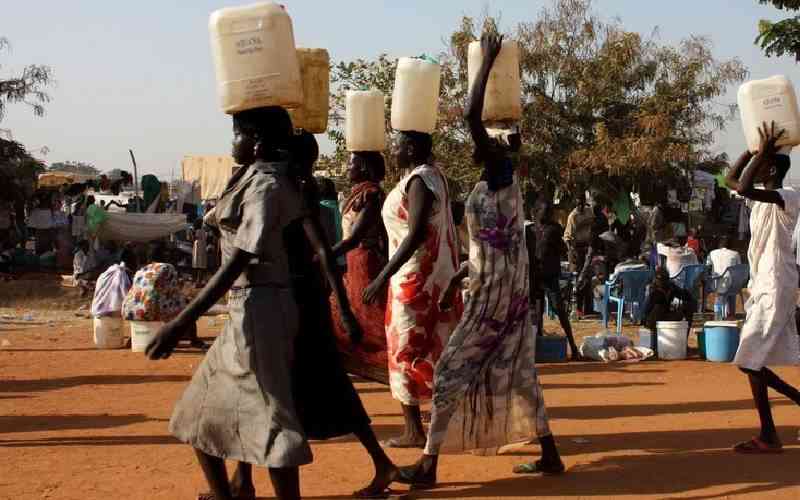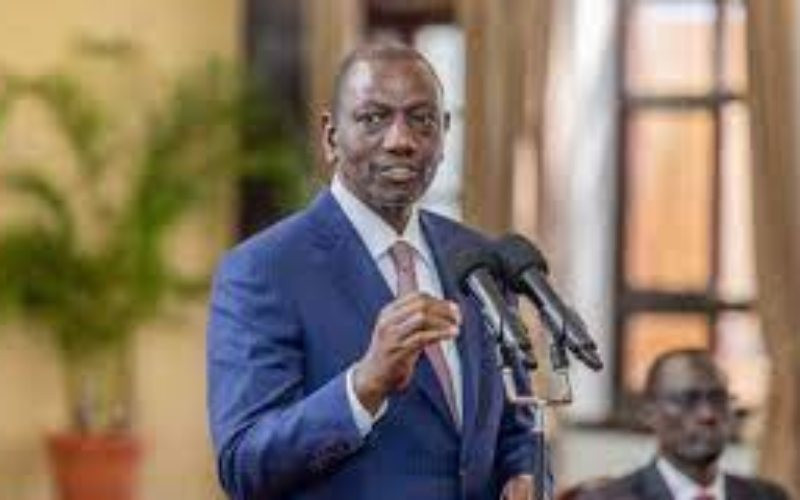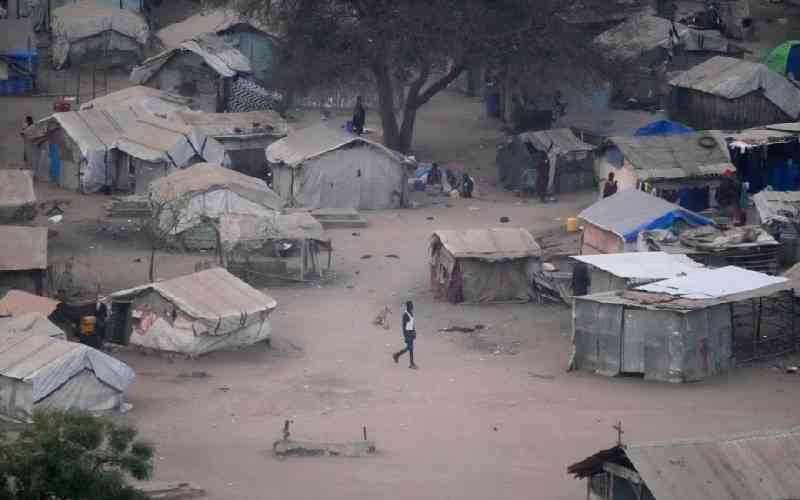For years, I thought South Sudan was a victim society. History has a wicked way of dealing some people a cruel hand. Bad topography is one. Another is simply having bad neighbours – predatory and malevolent neighbours. Yet another is the cruelty of being colonised – internally, or eternally. A greedy and myopic elite can be the final straw. But dynamics internal to a people can also do them in. Taken together, a combination of these factors can lead to damnation. That’s what I believe is South Sudan’s curse. Everything – including the proverbial kitchen sink – has been thrown at South Sudan. It’s a tragedy that the elite in South Sudan can’t stop digging although it’s already in a deep hole.
One of the arguments made by the colonial empires was that the so-called natives lacked sovereignty of reason. That people who were not white – defined as “the other” – lacked faculties of the mind required for self-governance. By the way, that’s the genesis of international law – as a legal justification to occupy and take territories occupied by “natives” in the Americas, Africa, Asia, and the Pacific. These lands were terra nullius – no man’s land. This Eurocentric worldview held that non-whites were subhuman and that it was the duty of the white man – predestination, or white man’s burden – to raise backward peoples to full humanity. This was one rationale for the colonisation and “salvation” of the native, the heathen, the pagan, the savage, the kaffir.
Even the League of Nations and the United Nations ratified the legality of colonisation and put colonial peoples under the “trust” or “mandate” of the colonisers. The period of the “trust” and the “mandate” was supposed to prepare natives for self-governance.
Apart from pitting native and against native, this was one function of Lord Lugard’s Indirect Rule. It was the same logic for Alliance High School – and other missionary or colonial schools – for native children. The idea was to “beat the savage” out of them and “civilise” them so they could first serve the empire, and later an African-ruled state, if it came to that. That’s why we need to critique Carey Francis again.
But I digress. What does all of this have to do with South Sudan? I think Afro-pessimists and racists must be smiling in glee at the woes in South Sudan and Somalia. Especially South Sudan. A state of dystopia has descended on the poor people of that godforsaken country. I do not know any rational human being who didn’t celebrate the secession of South Sudan from Sudan. That forced marriage – born out of rape – was doomed from the day it was conceived. The Arabised North owned Sudan where the black African South and the black and Muslim Darfur region were nothing but vassals for plunder. The trauma of decades – centuries – of dispossession is evident in the people of South Sudan.
My point is that those who believe that Africans are incapable of ruling themselves must be dusting racist colonial manuals over afternoon tea. These are the facts. After years of brutal, genocidal wars, South Sudan walks away from Sudan. It’s blessed with abundant natural resources and untold gushers of oil. The so-called international community is itching to be part of South Sudan’s success. Investors flock.
Advisors on everything from infrastructure to governance flood the country. Kenyan teachers and other professionals, including builders and bankers, rush in to fill the skills gap. For a moment, the world lives in false bliss. Then everything falls apart. Fighting breaks out between factions of government. Thousands are killed and many more flee.
We are back to square one. President Salva Kiir and Vice President Riek Machar – two antagonistic individuals – ignite the conflict. Alas, it seems that South Sudan didn’t need Sudan to tear itself apart.
The world pleads for sense. Kenya and her sane neighbours – and there are not many – exert pressure on Mr Kiir and Dr Machar to put their own people first. Nothing gives. Ceasefires are signed. Unity meetings are held. Mr Machar even returns to Juba to take his seat as Vice President.
Then he flees again – and is replaced by his former comrades. From where I sit, I can predict with certainty that Mr Machar or his lieutenants will launch a guerilla war against Juba. There’s no respite.
What does the tragedy of South Sudan tell us about post-colonial states, and especially the dysfunctional one in South Sudan?
What does it tell us about predatory post-colonial elites who can’t see beyond the bridge of their noses? How do we answer the racist charge “we told you so?” Is it the post-colonial state that’s incapable of redemption, or the post-colonial elite that’s the doom of many an African state? Can South Sudan save itself? I am tortured.
 The Standard Group Plc is a
multi-media organization with investments in media platforms spanning newspaper
print operations, television, radio broadcasting, digital and online services. The
Standard Group is recognized as a leading multi-media house in Kenya with a key
influence in matters of national and international interest.
The Standard Group Plc is a
multi-media organization with investments in media platforms spanning newspaper
print operations, television, radio broadcasting, digital and online services. The
Standard Group is recognized as a leading multi-media house in Kenya with a key
influence in matters of national and international interest.
 The Standard Group Plc is a
multi-media organization with investments in media platforms spanning newspaper
print operations, television, radio broadcasting, digital and online services. The
Standard Group is recognized as a leading multi-media house in Kenya with a key
influence in matters of national and international interest.
The Standard Group Plc is a
multi-media organization with investments in media platforms spanning newspaper
print operations, television, radio broadcasting, digital and online services. The
Standard Group is recognized as a leading multi-media house in Kenya with a key
influence in matters of national and international interest.









